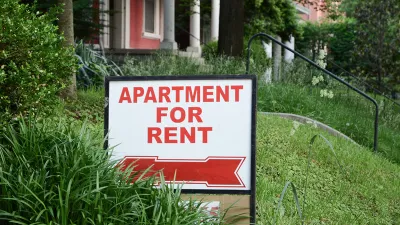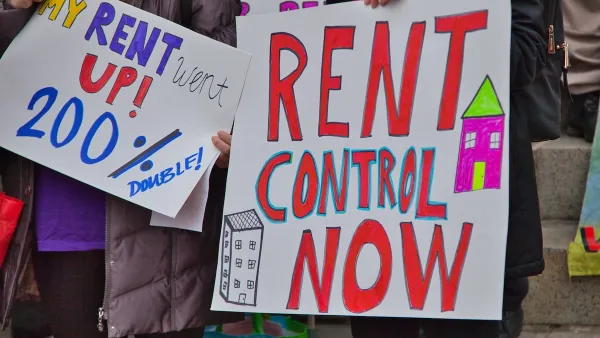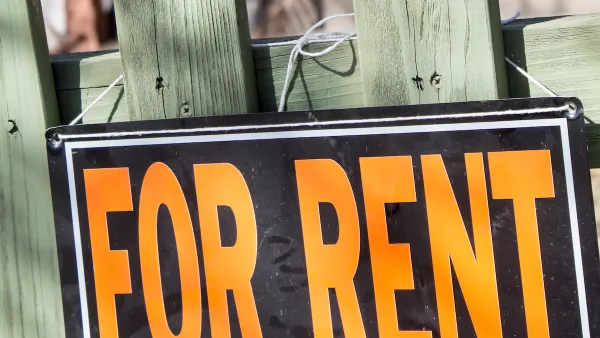The public perception of rent control has been dominated by apartment owner-funded studies and messaging for decades, fostering misconceptions about it's impact, according to poverty law attorney Parisa Ijadi-Maghsoodi.

Rent control has been losing the public perception battle. This circumstance comes as no surprise given that corporate money and profits align with property owners and real estate investors. San Diego poverty law attorney Parisa Ijadi-Maghsoodi provides a concise rebuttal to some of the most common public perceptions about rent control—what she calls the "myths" of rent control:
Myth 1: Rent control is illegal.
Fact: Rent control is legal and an effective tool to address housing affordability.
Myth 2: Rent control decreases the housing stock by disincentivizing new housing construction.
Fact: Rent control has no impact on new construction because it does not apply to new construction.
Myth 3: Rent control causes the rental stock to decrease because rent control units will be converted to condominiums.
Fact: Ordinances restricting condominium conversions protect the stock of rental units under rent control.
Myth 4: Rent control hurts tenants.
Fact: Rent control helps tenants. Rent control studies are funded by real estate developments, investors, and corporate apartment owner associations, and their own data supports the effectiveness of rent control.
Myth 5: Rent control is not needed, building market rate units will solve the housing crisis.
Fact: Building market rate units without effective tenant protection ordinances exacerbates the housing crisis.
Myth 6: Rent control incentivizes tenants to remain tenants, rather than become homeowners invested in their communities.
Fact: Society has traditionally favored homeowners over tenants primarily because homeowners intend to reside in and better their community, and rent control furthers these goals.
To match these "myths," in her article, Ijadi-Maghsoodi provides 7 recommendations for additional measures to stabilize rental housing and protect families. For Ijadi-Maghsoodi's reasoning and authority for her conclusions, please read the source article.
FULL STORY: Demystifying Rent Control

Analysis: Cybertruck Fatality Rate Far Exceeds That of Ford Pinto
The Tesla Cybertruck was recalled seven times last year.

National Parks Layoffs Will Cause Communities to Lose Billions
Thousands of essential park workers were laid off this week, just before the busy spring break season.

Retro-silient?: America’s First “Eco-burb,” The Woodlands Turns 50
A master-planned community north of Houston offers lessons on green infrastructure and resilient design, but falls short of its founder’s lofty affordability and walkability goals.

Test News Post 1
This is a summary

Analysis: Cybertruck Fatality Rate Far Exceeds That of Ford Pinto
The Tesla Cybertruck was recalled seven times last year.

Test News Headline 46
Test for the image on the front page.
Urban Design for Planners 1: Software Tools
This six-course series explores essential urban design concepts using open source software and equips planners with the tools they need to participate fully in the urban design process.
Planning for Universal Design
Learn the tools for implementing Universal Design in planning regulations.
EMC Planning Group, Inc.
Planetizen
Planetizen
Mpact (formerly Rail~Volution)
Great Falls Development Authority, Inc.
HUDs Office of Policy Development and Research
NYU Wagner Graduate School of Public Service




























